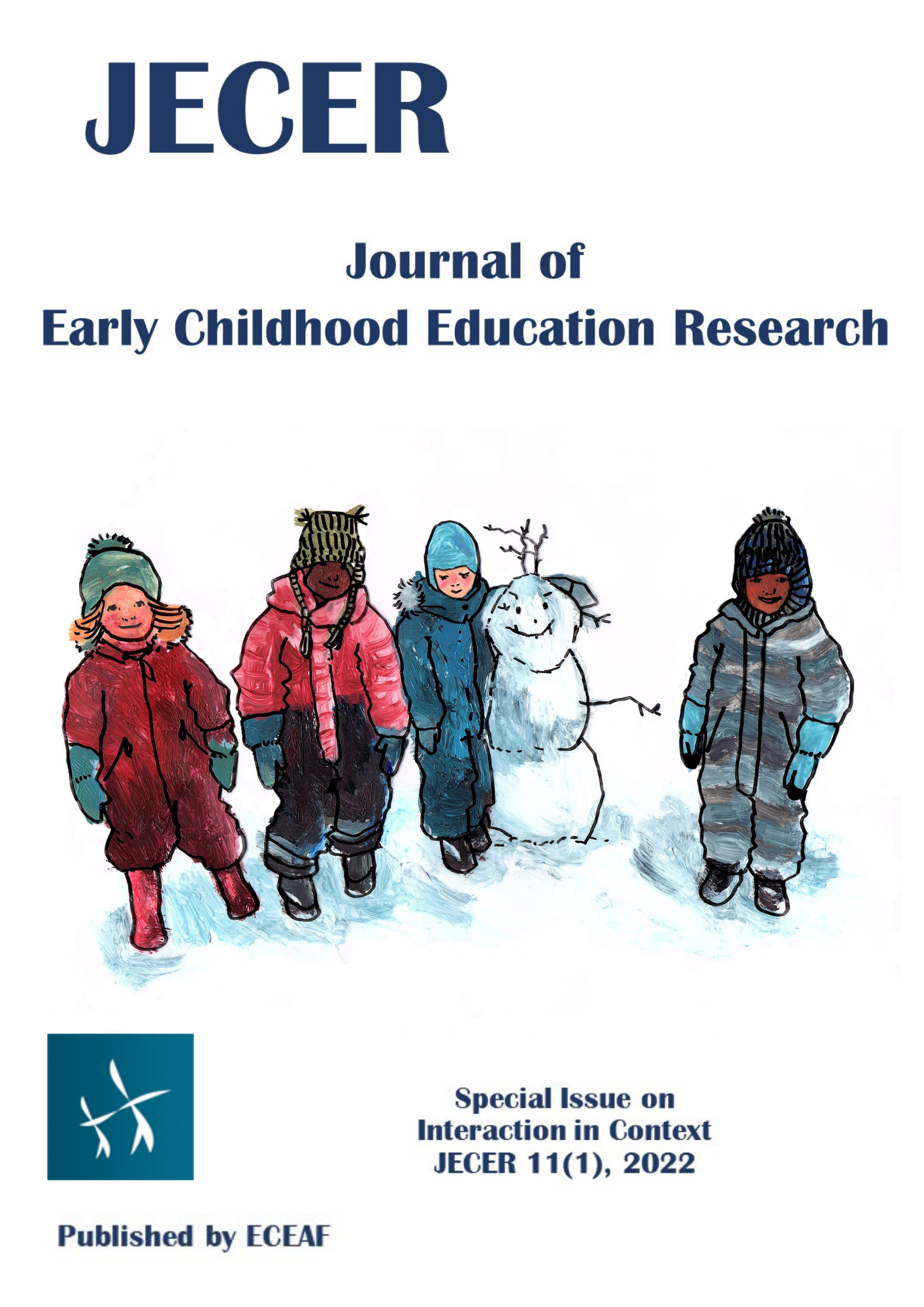Children’s social orientations as creative processes in early childhood education and care
Keywords:
creativity, , creative thinking abilities, participation, social orientationsAbstract
The purpose of this article is to study children’s social orientations as creative processes in early childhood education and care (ECEC). In this article, we focus on how children’s creative thinking abilities relate to children’s social orientations in interactive situations in ECEC. We study children’s creative thinking abilities with the Thinking Creatively in Action and Movement [TCAM] -test and children’s social orientations with the Child observation instrument of Reunamo (2007). Two hundred and eighty children in 23 ECEC institutions participated in the research. There were altogether eight randomly selected days for the observation between January and May 2015. The TCAM-test was conducted by teachers for their own group. The connections between the TCAM-test and the Child observation instrument were studied with partial correlations controlling children’s age. The results showed that children’s creative thinking abilities were associated positively with participative social orientation. An adaptive and withdrawn orientation had negative correlations with creative thinking abilities.

